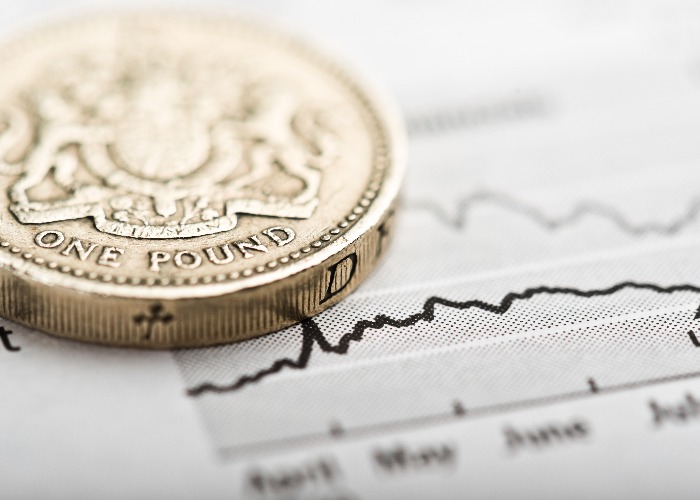Investors retreat to cash over Covid concerns

Market turbulence pushing investors away from shares, but given the abysmal savings rates, is the rush to cash really a smart idea?
Investment firm HYCM has polled more than 900 investors, all of whom have investments totalling more than £10,000, on where they are putting their cash at the moment.
And it’s striking that so many are opting for cash savings, rather than the likes of stocks and shares.
More than three quarters (78%) have money in cash already, compared to 40% who are invested in stocks and shares and 38% who have at least some money in property.
But a third (32%) said they are planning to put more money into their savings in the coming months, compared to just one in five (21%) who are planning to buy more shares.
What’s more, almost three quarters (73%) say they are not intending to make any major investment decisions for the rest of 2020.
As Giles Coghlan, chief currency analyst at HYCM, put it, the “retreat” to cash “reflects a general market desire to reduce their risk exposure in the short to medium-term”.
Uncertain times
Now, I absolutely understand the appeal of cash at a time like this. It’s fair to say that there’s just a little bit of uncertainty in the economy at the moment, with the impacts of Covid-19 still far from over.
And while the FTSE 100 is currently in far healthier shape than it was just a few months ago ‒ at 6,114 at the time of asking, compared to 4,993 in March ‒ it’s still significantly down on a year ago.
Some of us have had our fingers burned by more than just the chaos of the pandemic too.
Investors who suffered at the hands of the Neil Woodford fiasco are due to receive their third payment from the closed funds this week, though the losses from backing the once golden boy of investment management remain significant.
Between gigantic economic events, and high profile investment figures who turn out not to be the messiah, but rather a very naughty boy, it’s to be expected that some individual investors will be more than a little wary about sticking money into stocks and shares.
But turning to cash is far from a great idea.
Laughable returns
The sad fact is that the returns on offer from cash savings right now are absolutely laughable. And this is the case across the board, from easy access to those which supposedly pay a premium when you lock your money up for a few years.
New analysis from financial information site Moneyfacts lays this bare. Currently the best return on offer from an easy access account is the 1.15% paid by NS&I.
But locking your cash away barely improves the return ‒ a one-year fixed rate bond pays no more than 1.21%, while a five-year fixed rate bond pays a top rate of 1.50%.
That’s an additional 0.35% for locking your money away for five years, rather than going with an account that offers access to your cash whenever you want it. It’s not exactly enough to set the pulse racing, is it?
Compare that to August 2018, when the top easy access account paid 1.40%, while the best five-year bond delivered a return of 2.79%.
Don’t get me wrong, that’s still pretty naff, but at least there was an actual contrast in the returns on offer.
With inflation now at 1%, according to Moneyfacts the number of savings accounts that actually deliver an inflation-beating return has dropped from 440 last month to just 91.
In other words, not only are the interest rates on offer absolutely dreadful, in many cases your money ends up losing value in real terms.
Cash isn’t the answer
Having at least some of your money in cash is a good idea at all times.
But the idea of selling up now, and then hoping to time getting back into the market when things are apparently on a more solid footing is a huge gamble.
And it’s one that rarely pays off.
A study by 7IM released earlier this year found that retreating to cash during market crashes of the last 12 years has ended up costing typical investors ‒ by tens of thousands of pounds ‒ compared with those who simply rode out any market troubles.
It found that an investor who put £100,000 in the 7IM Balanced Fund in 2007 and stayed put until June 2020 would have a pot worth £169,600.
By contrast, those who moved to cash in 2009, invested again a year later, and then pulled their funds again in March this year would have a post worth £116,500.
The reality is that you can’t time the market properly, and even attempting to will potentially cost you more than if you hold your nerve and keep your cash invested in the right places.
Most Recent
Comments
-
there are huge uncertainties in the market right now, and nobody knows how things are going to develop. Sitting on cash AND being prepared to invest when the risks become more clearly defined isn't necessarily a bad option. There is much more bad news on the way.
REPORT This comment has been reported.
Do you want to comment on this article? You need to be signed in for this feature









02 September 2020